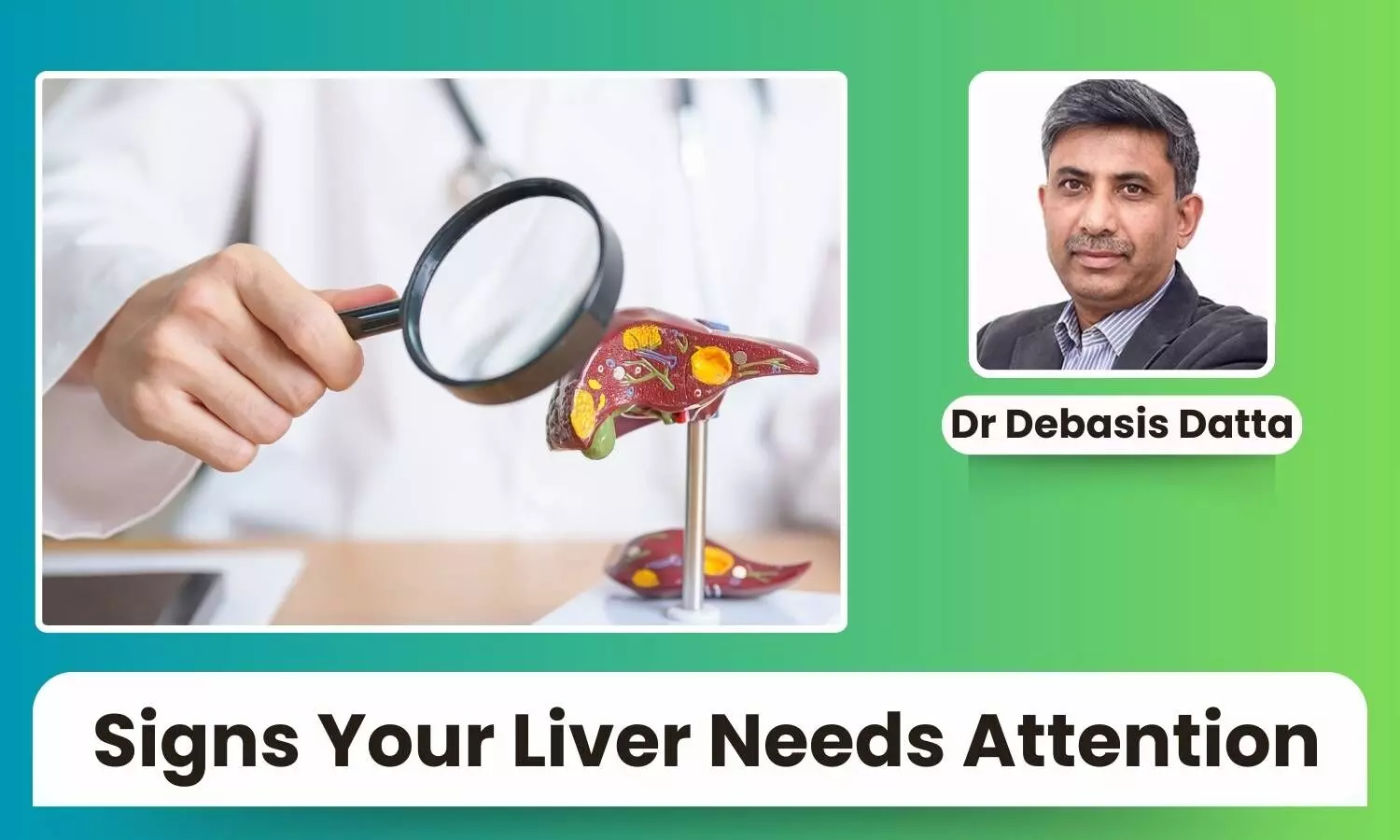Top 6 Signs Your Liver Might Need Attention - Dr Debasis Datta

The liver is one of the most vital organs in the body, performing essential functions such as detoxifying harmful substances, producing bile for digestion, and storing nutrients.
However, liver diseases often develop slowly and may go unnoticed until significant damage has occurred. It's important to be aware of the early signs that could indicate your liver is under stress. Here are six signs that your liver might need attention:
1. Unexplained Fatigue
If you're feeling unusually tired or sluggish, especially after a good night's sleep, it could be a sign that your liver is struggling to perform its functions.
Fatigue is a common symptom of liver disease because the liver plays a major role in energy production by metabolizing food and storing glycogen. When the liver is compromised, energy production can be hindered, leading to persistent tiredness.
2. Jaundice (Yellowing of the Skin and Eyes)
Jaundice is one of the most recognizable symptoms of liver problems. It occurs when the liver can no longer process bilirubin (a waste product produced when red blood cells break down), causing a build-up in the blood.
This leads to a yellowing of the skin and the whites of the eyes. If you notice yellowing, it's crucial to see a healthcare provider for evaluation.
3. Abdominal Pain or Swelling
Pain in the upper right side of the abdomen, where the liver is located, can be a sign of liver issues, including hepatitis.
Swelling or bloating in the abdomen, known as ascites, can also indicate liver dysfunction. Ascites occurs when the liver is unable to produce enough albumin, leading to fluid build-up in the abdomen.
4. Nausea and Loss of Appetite
Frequent nausea and a lack of appetite may be linked to liver problems, especially when these symptoms persist without a clear cause.
The liver helps process food and nutrients, so when it's not functioning optimally, it can lead to digestive disturbances like nausea, vomiting, and a general loss of appetite.
5. Dark Urine
If you notice that your urine has become darker in colour, this could be a warning sign of liver issues. Dark urine may be caused by a build-up of bilirubin in the bloodstream, a condition that occurs when the liver is unable to filter waste products effectively. If the urine is consistently dark, it's essential to consult a doctor.
6. Itchy Skin
Chronic itching (pruritus) can also be a symptom of liver disease. When the liver isn't working properly, it may cause bile salts to accumulate in the bloodstream, leading to intense itching. This can occur without any visible rash, and the itching may be more prominent on the palms of the hands or soles of the feet.
The liver is essential to your overall health, and catching potential problems early can prevent more severe complications.
If you experience any of the above symptoms, it's crucial to consult with a healthcare professional to determine the underlying cause. Early diagnosis and treatment can help protect the liver and improve your health outcomes.


